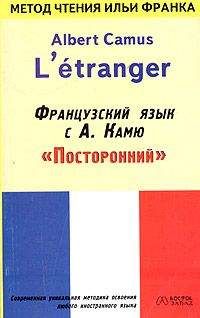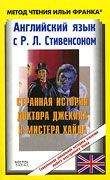Роберт Стивенсон - Английский язык с Р.Л.Стивенсоном. Остров сокровищ
“No more I would (и не стал бы слушать),” cried the squire (вскричал сквайр). “Had Livesey not been here I should have seen you to the deuce (не будь тут Ливси, я бы послал вас ко всем чертям; deuce — черт). As it is, I have heard you (однако, я вас выслушал; as it is — и так, на самом деле). I will do as you desire (сделаю /все/, как вы желаете); but I think the worse of you (но я думаю /теперь/ хуже о вас).”
“That’s as you please, sir (это как вам угодно, сэр),” said the captain. “You’ll find I do my duty (вы обнаружите = позже поймете, что я исполняю свой долг).”
And with that he took his leave (и с этим = сказав это, он удалился: «взял свой отпуск»).
“Trelawney,” said the doctor, “contrary to all my notions (вопреки всем моим представлениям; notion — понятие, представление, взгляд), I believe you have managed to get two honest men on board with you (думаю, вам удалось привести с собой на борт двух честных людей) — that man and John Silver (этого человека и Джона Сильвера).”
discharged [dɪs`tʃɑ:ʤd] deuce [dju:s] contrary [`kɔntrərɪ] notion [`nəuʃn]
“Doctor,” said the captain, “you are smart. When I came in here I meant to get discharged. I had no thought that Mr. Trelawney would hear a word.”
“No more I would,” cried the squire. “Had Livesey not been here I should have seen you to the deuce. As it is, I have heard you. I will do as you desire; but I think the worse of you.”
“That’s as you please, sir,” said the captain. “You’ll find I do my duty.”
And with that he took his leave.
“Trelawney,” said the doctor, “contrary to all my notions, I believe you have managed to get two honest men on board with you — that man and John Silver.”
“Silver, if you like (Сильвер — пожалуй),” cried the squire; “but as for the intolerable humbug (но что до того невыносимого хвастуна; to tolerate — выносить, терпеть), I declare I think his conduct unmanly, unsailorly, and downright un-English (заявляю, что считаю его поведение недостойным мужчины, недостойным моряка, и cовершенно недостойным англичанина; downright — прямо, решительно, откровенно).”
“Well (ну, что ж),” says the doctor, “we shall see (посмотрим).”
When we came on deck (когда мы вышли на палубу), the men had begun already to take out the arms and powder (матросы уже начали выносить = перетаскивать оружие и порох), you-ho-ho-ing at their work (пели «йо-хо-хо» за работой), while the captain and Mr. Arrow stood by superintending (в то время как капитан и мистер Эрроу стояли, руководя).
The new arrangement was quite to my liking (новое расположение было вполне мне по вкусу). The whole schooner had been overhauled (вся шхуна была переоборудована); six berths had been made astern (шесть кают было делано в корме), out of what had been the after-part of the main hold (за которыми был главный трюм; after-part — кормовая часть корпуса) and this set of cabins was only joined to the galley and forecastle by a sparred passage on the port side (и эти каюты соединялись только с камбузом /корабельной кухней/ и баком с помощью дощатого прохода по левому борту; set — набор, комплект; spar — перекладина, брус, балка; port side — левый борт; forecastle — носовой кубрик /бак/ — передняя часть корабля, где находились помещения для матросов). It had been originally meant that the captain, Mr. Arrow (первоначально они предназначались для капитана, мистера Эрроу), Hunter, Joyce the doctor, and the squire, were to occupy these six berths (они должны были занять эти шесть кают). Now, Redruth and I were to get two of them (теперь же Редрут и я должны были взять две из них), and Mr. Arrow and the captain were to sleep on deck in the companion (а мистер Эрроу и капитан — спать на палубе, в сходном тамбуре; companion — деревянный козырек над лестницей, ведущей к каютам и в трюм), which had been enlarged on each side till you might almost have called it a round-house (который был расширен с обеих сторон, так что его можно было назвать кормовой рубкой). Very low it was still, of course (он был все же, конечно, слишком маленьким); but there was room to swing two hammocks (но там было место, чтобы повесить два гамака), and even the mate seemed pleased with the arrangement (и даже штурман, казалось, был доволен таким размещением; arrangement — расположение, переделка). Even he, perhaps, had been doubtful as to the crew (даже он, быть может, сомневался насчет = не доверял команде), but that is only guess (но это только предположение); for, as you shall hear, we had not long the benefit of his opinion (так как, как вы вскоре узнаете, мы не долго имели милость его мнения = он недолго находился на шхуне; benefit — выгода, польза, преимущество; opinion — мнение, суждение, отзыв).
“Silver, if you like,” cried the squire; “but as for the intolerable humbug, I declare I think his conduct unmanly, unsailorly, and downright un-English.”
“Well,” says the doctor, “we shall see.”
When we came on deck, the men had begun already to take out the arms and powder, you-ho-ho-ing at their work, while the captain and Mr. Arrow stood by superintending.
The new arrangement was quite to my liking. The whole schooner had been overhauled; six berths had been made astern, out of what had been the after-part of the main hold and this set of cabins was only joined to the galley and forecastle by a sparred passage on the port side. It had been originally meant that the captain, Mr. Arrow, Hunter, Joyce the doctor, and the squire, were to occupy these six berths. Now, Redruth and I were to get two of them, and Mr. Arrow and the captain were to sleep on deck in the companion, which had been enlarged on each side till you might almost have called it a round-house. Very low it was still, of course; but there was room to swing two hammocks, and even the mate seemed pleased with the arrangement. Even he, perhaps, had been doubtful as to the crew, but that is only guess; for, as you shall hear, we had not long the benefit of his opinion.
We were all hard at work (мы все тяжело работали), changing the powder and the berths (меняя = перетаскивая порох и устраивая каюты), when the last man or two, and Long John along with them (когда последний человек или два = последние матросы, и вместе с ними Долговязый Джон), came off in a shore-boat (прибыли в /береговой/ шлюпке; to come off — произойти, иметь место, остановиться).
The cook came up the side like a monkey for cleverness (кок взошел на борт с ловкостью обезьяны), and, as soon as he saw what was doing (как только он увидел, что делалось), “So ho, mates (эй, приятели)!” says he, “what’s this (что это /вы делаете/)?”
“We’re a-changing of the powder, Jack (мы переносим порох, Джек),” answers one (отвечает один).
“Why, by the powers (как, черт побери),” cried Long John (воскликнул Долговязый Джон), “if we do, we’ll miss the morning tide (если мы /так будем работать/, мы прозеваем утренний отлив)!”
“My orders (мои приказы = здесь я командую)!” said the captain shortly (сказал капитан отрывисто). “You may go below, my man (можете спуститься вниз /в камбуз/, милейший: «мой человек»). Hands will want supper (команда захочет ужин).”
“Ay, ay, sir (есть, сэр),” answered the cook (ответил кок); and, touching his forelock (и, прикоснувшись рукой лба; forelock — прядь волос на лбу, чуб, челка), he disappeared at once in the direction of his galley (исчез сразу же в направлении камбуза).
monkey [`mʌŋkɪ] tide [taɪd] shortly [`ʃɔ:tlɪ] supper [`sʌpə] forelock [`fɔ:lɔk] galley [`gælɪ]
We were all hard at work, changing the powder and the berths, when the last man or two, and Long John along with them, came off in a shore-boat.




